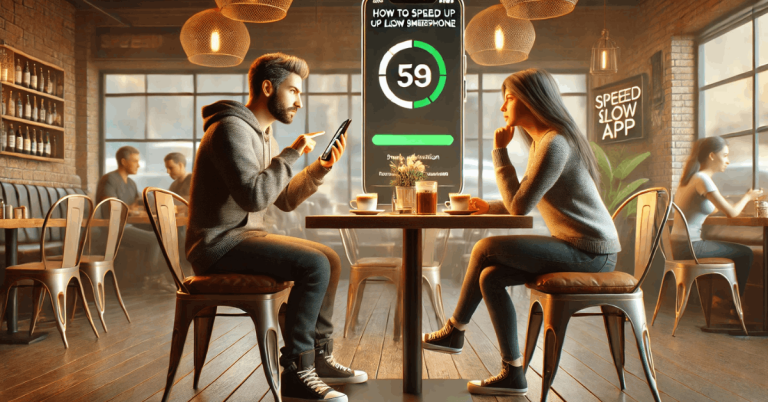To secure your data while using mobile apps, you must understand the risks they pose. Cybercriminals exploit weak passwords, outdated apps, and excessive permissions to access sensitive information.
This article outlines essential security measures to protect your data. Taking the right precautions helps prevent breaches and keeps your information safe.
Why Protecting Your Data on Mobile Devices Matters?
Cyber threats are increasing as more people rely on mobile devices. Hackers target personal information through weak passwords and outdated software.
Public Wi-Fi and untrusted downloads expose data to risks. Unauthorized access can lead to identity theft or financial loss.
Securing your device prevents breaches and keeps personal details safe. Simple habits like using strong passwords and updating software help reduce risks.
Understanding the Basics of Mobile Security
Mobile security protects personal information from cyber threats. Knowing common risks helps prevent data leaks and fraud.
Key Terms You Should Know
Data security means protecting personal information from theft or damage. Encryption scrambles data so only authorized users can read it.
This protects messages, payments, and stored files. Two-factor authentication (2FA) adds a second layer of security, like a code sent to your phone.
Using 2FA stops hackers even if they steal your password. Stronger protection keeps your device and accounts safer.
Common Security Risks on Mobile Devices
Many apps request unnecessary permissions, exposing personal data. Public Wi-Fi networks are often unsafe and can leak sensitive information.
Outdated software makes devices vulnerable to cyberattacks. Phishing scams trick users into sharing login details.
Weak passwords allow hackers to access accounts easily. Being aware of these risks helps prevent security breaches.
Essential Security Measures for Mobile Apps
Mobile devices store sensitive information, making security a priority. Using the right protection methods helps reduce risks and keep data safe.
Strong Passwords: Importance and Tips
Weak passwords make it easy for hackers to access accounts. A strong password should be 12 characters long and include numbers, symbols, and uppercase letters.
Avoid using common words or personal details like birthdates. Using a password manager helps generate and store complex passwords securely.
Updates: Keeping Apps and Operating Systems Up to Date
Outdated software creates security weaknesses that hackers exploit. Regular updates fix vulnerabilities and improve protection.
Set automatic updates to keep apps and devices secure. Ignoring updates increases the risk of cyberattacks.
Permissions: Managing App Permissions to Minimize Data Access
Many apps request unnecessary permissions, exposing personal data. Limiting permissions reduces the risk of unauthorized access.
Check settings and disable access to sensitive information like location, contacts, and camera when not needed.
Only allow permissions required for an app’s function. Avoid granting access to unknown developers. Reviewing permissions regularly strengthens security.
Two-Factor Authentication: Enhancing Security with Additional Verification
Adding an extra layer of security helps prevent unauthorized access. Two-factor authentication (2FA) makes it harder for hackers to breach accounts.
- Extra verification requires a second step, like a code sent to your phone.
- Even if someone steals a password, 2FA stops unauthorized logins.
- Enable 2FA on banking, email, and other sensitive accounts.
- Apps like Google Authenticator or SMS codes provide secure verification.
- Regularly update security settings to improve protection.
Advanced Security Techniques
Basic security measures help, but additional steps provide stronger protection. These advanced techniques enhance privacy and reduce risks.
Encryption: How Encryption Works to Secure Data
Encryption protects sensitive information by converting it into a coded format. This makes it unreadable to hackers or unauthorized users.
Strong encryption methods protect messages, banking details, and files. Most secure apps and websites use encryption to keep data safe.
Avoid using platforms that lack proper encryption. Keeping encrypted backups adds another layer of security.
VPNs: The Role of Virtual Private Networks in Protecting Data
Public Wi-Fi networks are easy targets for hackers. A VPN hides online activity by creating a secure connection between a device and the internet.
This prevents third parties from tracking browsing history or stealing data. Using a VPN is important when accessing banking or personal accounts on public networks.
Choose a reputable VPN provider for strong encryption and privacy. Avoid free VPNs, as they may collect personal data.
Anti-Virus and Anti-Malware Software: Recommended Tools and Practices
Malware can steal passwords, track activity, or damage a device. Installing reliable anti-virus software helps detect and remove threats.
Keep security software updated to stay protected against new attacks. Run regular scans to check for suspicious activity.
Avoid downloading files or links from unknown sources. A strong security program prevents data theft and device damage.
Evaluating App Security Before Downloading
Not all apps are safe, and some may contain hidden risks. Checking key details before installing helps prevent security threats.
Checking App Reviews and Ratings
User feedback helps identify security issues and privacy concerns. Low ratings or frequent complaints about data breaches are red flags.
Avoid apps with unclear permissions or excessive ads. Always check reviews before downloading to avoid risky software.
Researching the App Developer’s Reputation
A trusted developer is less likely to create unsafe apps. Check the developer’s website, past projects, and user feedback.
Unknown developers or limited online presence may indicate security risks. Choosing reputable developers helps reduce privacy concerns.
Understanding the Privacy Policy of Apps
A privacy policy explains how personal data is collected and used. Apps that request too much information without clear reasons may be unsafe.
Reading the policy helps avoid apps that sell or misuse data. Avoid installing if privacy terms seem unclear or excessive.
Best Practices for Secure Mobile App Usage
Safe usage habits reduce security risks and protect personal information. Following simple steps helps prevent unauthorized access and data theft.
Regularly Reviewing and Revoking Unnecessary App Permissions
Many apps request extra permissions that aren’t needed. Limiting access to location, contacts, and storage improves security.
Removing unused apps also reduces exposure to threats. Regular permission checks help prevent data misuse.
Being Wary of Unsolicited Requests for Personal Information
Scammers often use fake emails or messages to steal sensitive data. Avoid sharing passwords or financial details with unknown sources.
Legitimate services never ask for confidential information through unsecured channels. Always verify requests before responding.
Using Secure Wi-Fi Connections for Sensitive Transactions
Public Wi-Fi is not secure and can expose private data. Hackers can intercept banking details or passwords on open networks.
Using a VPN or mobile data improves security when making transactions. Always avoid logging into important accounts on public networks.
Final Thoughts on Securing Your Data
To secure your data, take simple but effective steps. Strong passwords, updated software, and careful app permissions reduce risks.
Avoiding unsafe networks and untrusted apps also strengthens security. Staying informed and reviewing security settings regularly helps keep data safe.








